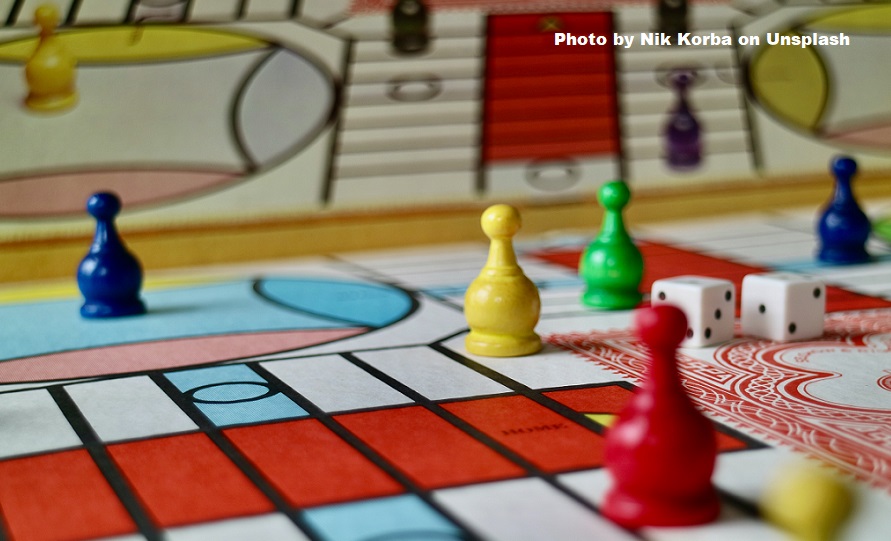Benefits of Board Games
In our current culture, so much socializing revolves around either going out or meeting online. Of course, Covid has undoubtedly increased the online trend! But there is another alternative: good clean fun with board games. These make for an enjoyable evening with friends or family, yet also have some great benefits!
Mental Health Benefits
Any time you can relax and enjoy yourself, you benefit your mental health. And board games certainly fit these criteria. But there's more- board games can make you laugh. This is especially true if playing with children and laughter is the best medicine. In the end, this is an excellent way to spend time that makes you feel good, and that's always a good thing.
Social Benefits
Ever been to a social event and it's felt uncomfortable because no one had anything to say? Perhaps some stilted conversation and awkward silences? That's because there wasn't a focus. A focus helps keep the conversation going and makes any silence less awkward (as people are focusing on the "focus"). Board games are a fantastic focus. Most of them require interaction, have interesting mechanics, and need thought. All of this provides direction and promotes socializing. A board game evening can strengthen bonds in your group, give you pleasant memories and positively rework the dynamics of the group.
Learning
Children, and even adults, can learn from board games. How? Well, board games involve pattern detection, cognitive skills, forward planning, new concepts, numbers, strategizing, explaining, and questioning. How could anyone not learn? Let's get specific, though:
Learning from experience
One of the remarkable features of board games is that you get do-overs. This means that you can try lots of tactics until you find one that's a winning one. Here's the even better part, though: your opponent is a human being who is also learning. So that winning tactic you found? The one that always works? Well, it always works until your opponent finds a way to beat it, or even use it themselves. So, now you need a new tactic or strategy!
Understanding rules and gameplay
Every board game has its own set of rules and ways of playing. Before you can figure out the strategy, you need to learn the rules; what you can and can't do. Just as you need to learn the rules when you are driving, at a new place of work, or even in a new social setting. Of course, since board game rules are normally contained on a single printed sheet, they are easier to learn. Yet this is a valuable skill that's worth acquiring or practicing.
Planning Ahead
Once you've learned the rules, you need to think about how to win; what strategy to use, or what tactics to try. A part of that is thinking about what other players might do, and what your moves now mean for the future. For example, at a basic level, in Monopoly, if you run out of money, then you need to mortgage properties or sell hotels-at a cost. So it's a good idea to have some spare cash.
Real Life with Training Wheels
Many board games represent simple aspects of real life. It's like real life with training wheels. This is great, in particular for children, as it's an easier way of learning concepts, like rent, buying and selling, or even change in monetary transactions.
Language
This is another one that is probably most beneficial for children. Board games also provide training wheels when it comes to interactions with other people. When you tell someone the rent is $10, or when you ask to buy a property, or any other interaction, you are taking part in a simple social exchange. It's easier than in real life, but it's also good practice.
Kinesthetic Learning
We all learn in different ways:
- By seeing things ("visually"), eg reading a textbook and looking at a diagram
- Through listening ("aurally"), for example, when you listen to an explanation
- By touch ("kinesthetically"), this can be touching, feeling, and moving objects
Some people are mainly visual learners, some are aural, and some are kinesthetic. But we can all learn through each of the three different ways and benefit from experiencing learning in these ways. Yet most input in modern society is visual or aural. Think TV, classrooms where the teacher is explaining, apps, video courses… Board games provide a nice counterpoint to this as they usually involve physically holding and moving things, thereby adding kinesthetic learning to your "education diet".
Next Steps
So, now you've seen some of the benefits of board games, perhaps you are tempted to play? Ideally, you could organize a board game night at home, but if that's not possible, you could consider hosting a virtual board game night using online board games. If you don't have board games and don't want to spend money, see if your local library will let you borrow one. Or check the free sites as sometimes people give them away.
Guest Blogger:
Jason is a father of two, former Mathematics teacher and board game aficionado. In his spare time he writes for Boards Cards Dice.
Search Internet4Classrooms

Custom Search







